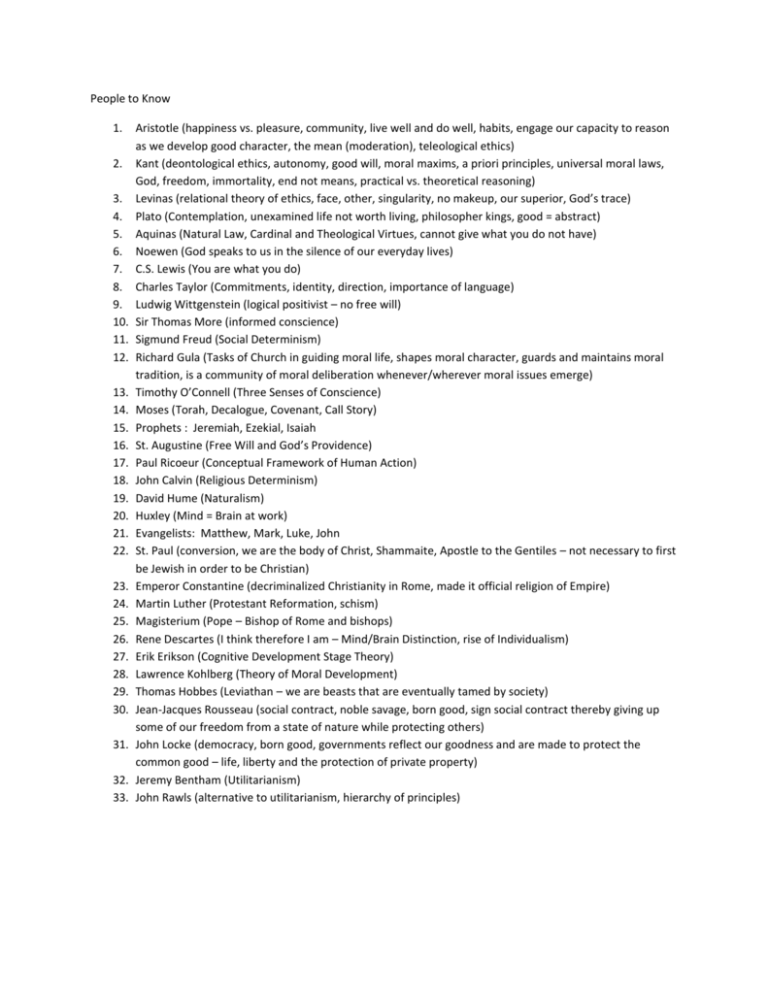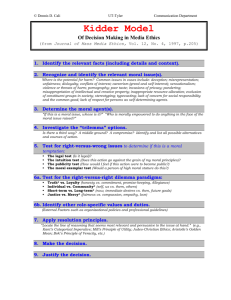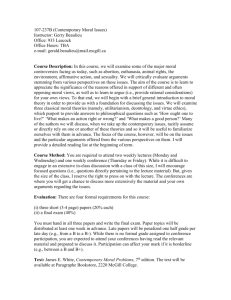People to Know Aristotle (happiness vs. pleasure, community, live
advertisement

People to Know 1. 2. 3. 4. 5. 6. 7. 8. 9. 10. 11. 12. 13. 14. 15. 16. 17. 18. 19. 20. 21. 22. 23. 24. 25. 26. 27. 28. 29. 30. 31. 32. 33. Aristotle (happiness vs. pleasure, community, live well and do well, habits, engage our capacity to reason as we develop good character, the mean (moderation), teleological ethics) Kant (deontological ethics, autonomy, good will, moral maxims, a priori principles, universal moral laws, God, freedom, immortality, end not means, practical vs. theoretical reasoning) Levinas (relational theory of ethics, face, other, singularity, no makeup, our superior, God’s trace) Plato (Contemplation, unexamined life not worth living, philosopher kings, good = abstract) Aquinas (Natural Law, Cardinal and Theological Virtues, cannot give what you do not have) Noewen (God speaks to us in the silence of our everyday lives) C.S. Lewis (You are what you do) Charles Taylor (Commitments, identity, direction, importance of language) Ludwig Wittgenstein (logical positivist – no free will) Sir Thomas More (informed conscience) Sigmund Freud (Social Determinism) Richard Gula (Tasks of Church in guiding moral life, shapes moral character, guards and maintains moral tradition, is a community of moral deliberation whenever/wherever moral issues emerge) Timothy O’Connell (Three Senses of Conscience) Moses (Torah, Decalogue, Covenant, Call Story) Prophets : Jeremiah, Ezekial, Isaiah St. Augustine (Free Will and God’s Providence) Paul Ricoeur (Conceptual Framework of Human Action) John Calvin (Religious Determinism) David Hume (Naturalism) Huxley (Mind = Brain at work) Evangelists: Matthew, Mark, Luke, John St. Paul (conversion, we are the body of Christ, Shammaite, Apostle to the Gentiles – not necessary to first be Jewish in order to be Christian) Emperor Constantine (decriminalized Christianity in Rome, made it official religion of Empire) Martin Luther (Protestant Reformation, schism) Magisterium (Pope – Bishop of Rome and bishops) Rene Descartes (I think therefore I am – Mind/Brain Distinction, rise of Individualism) Erik Erikson (Cognitive Development Stage Theory) Lawrence Kohlberg (Theory of Moral Development) Thomas Hobbes (Leviathan – we are beasts that are eventually tamed by society) Jean-Jacques Rousseau (social contract, noble savage, born good, sign social contract thereby giving up some of our freedom from a state of nature while protecting others) John Locke (democracy, born good, governments reflect our goodness and are made to protect the common good – life, liberty and the protection of private property) Jeremy Bentham (Utilitarianism) John Rawls (alternative to utilitarianism, hierarchy of principles)











